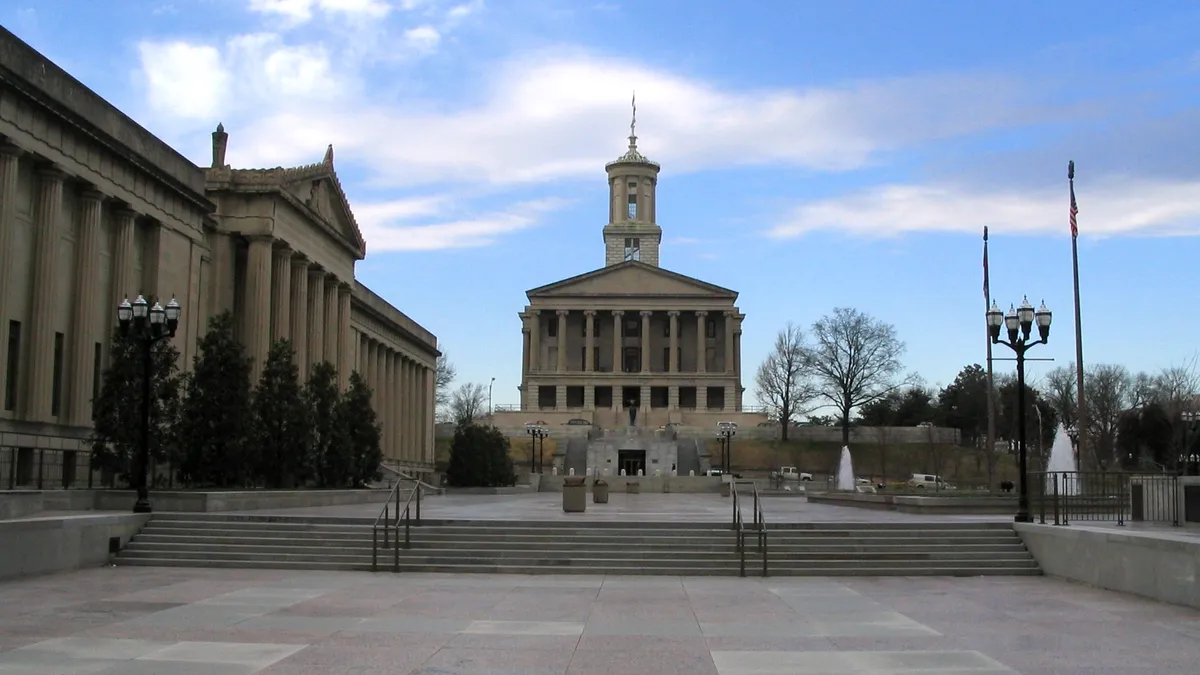Dive Brief:
-
Tennessee's largest education association and five public school educators filed a lawsuit challenging one of the nation's earliest divisive concepts laws, a Tennessee statute passed in 2021, the Tennessee Education Association announced in a Wednesday news release.
-
The lawsuit, filed against the Tennessee commissioner of education and members of the state board of education by the Tennessee Education Association, claims the law's enforcement is subjective and interferes with instruction on key topics included in the state's curriculum standards.
-
The lawsuit joins a handful of similar challenges to divisive concepts or anti-critical race theory bills that have spread across the nation in mostly conservative states, claiming that the statutes are vaguely worded and prevent teachers from doing their jobs.
Dive Insight:
The divisive concepts law "encourages arbitrary and discriminatory enforcement" and violates the 14th Amendment, according to the lawsuit. Educators challenging the law are seeking to permanently block it.
When Tennessee's law was passed, lawmakers supporting the legislation said it still allows "teachers in the classroom to talk about the good, bad and ugly of history," but that it would "stop the blame game" in those discussions.
The Tennessee Education Association, however, claims the law "puts teachers in an impossible position," because its restrictions conflict with the state's academic standards.
"This law interferes with Tennessee teachers' job to provide a fact-based, well-rounded education to their students," said Tennessee Education Association President Tanya Coats, an educator in Knox County, in a statement. Coats added that it puts educators at "unfair risk."
The lawsuit also claims the statute is unclear and "fails to provide Tennessee educators a reasonable opportunity to understand what conduct it prohibits," per the press release. "Laws need to be clear," said Coats.
Lawsuits in other states challenging so-called divisive concepts or anti-critical race theory laws have made similar claims.
A New Hampshire lawsuit filed in December 2021, just six months after passage of that state’s divisive concepts law, claimed the legislation prevented teachers from discussing racism's impact and deprived students of their right to an adequate education. That legal challenge also mentioned the statute's vague nature, similar to Tennessee's recent lawsuit.
New Hampshire's lawsuit, filed on behalf of public school teachers and parents, claims the law violated teachers' First Amendment right to free speech in addition to the 14th Amendment.
In January, over a year after the suit was filed, a judge denied the state's request to dismiss the case entirely and allowed it to proceed to trial.
Georgia, Florida and Oklahoma are among other states where teachers have challenged state laws restricting curriculum and discussion on race-related topics.
Since September 2020, a total of 214 local, state and government entities across the nation have introduced nearly 700 anti-critical race theory policies, according to UCLA School of Law's CRT Forward, which tracks the issue.
According to PEN America, a free speech organization that tracks curriculum regulation and policies, at least 11 states have passed such laws related to K-12 education.











